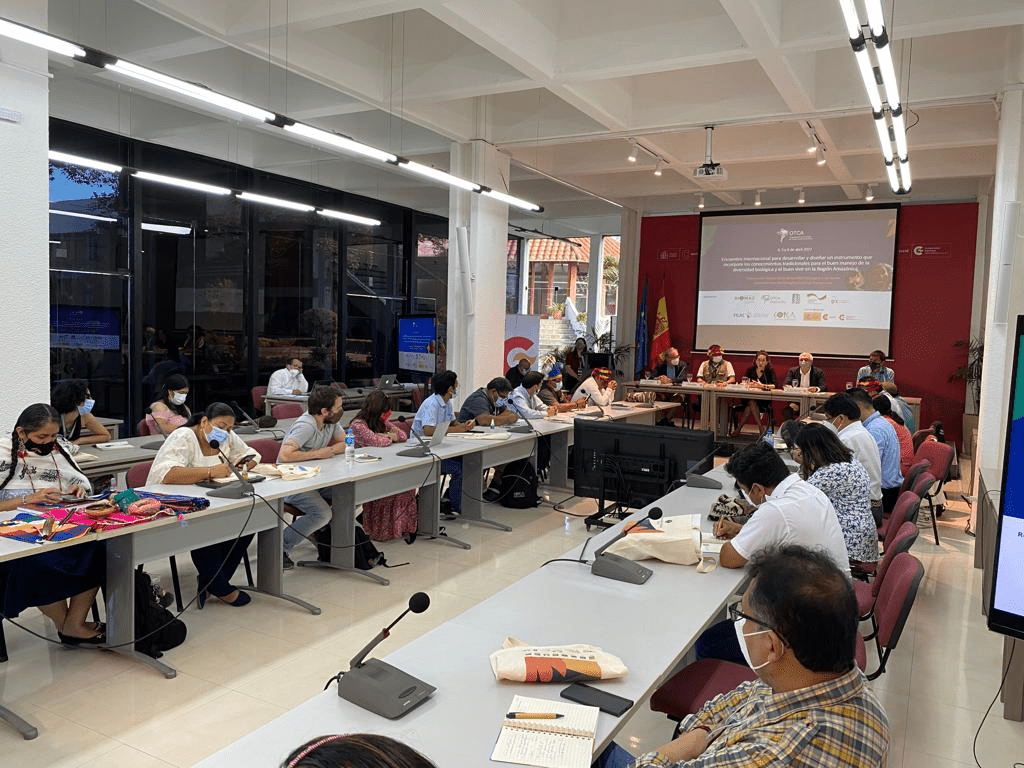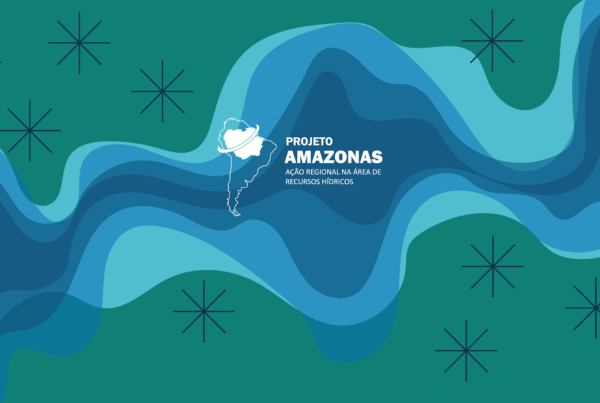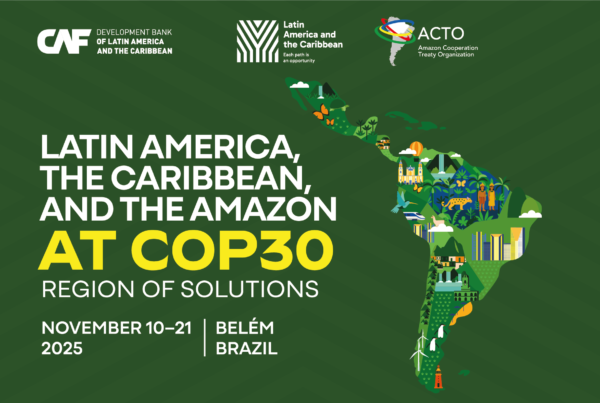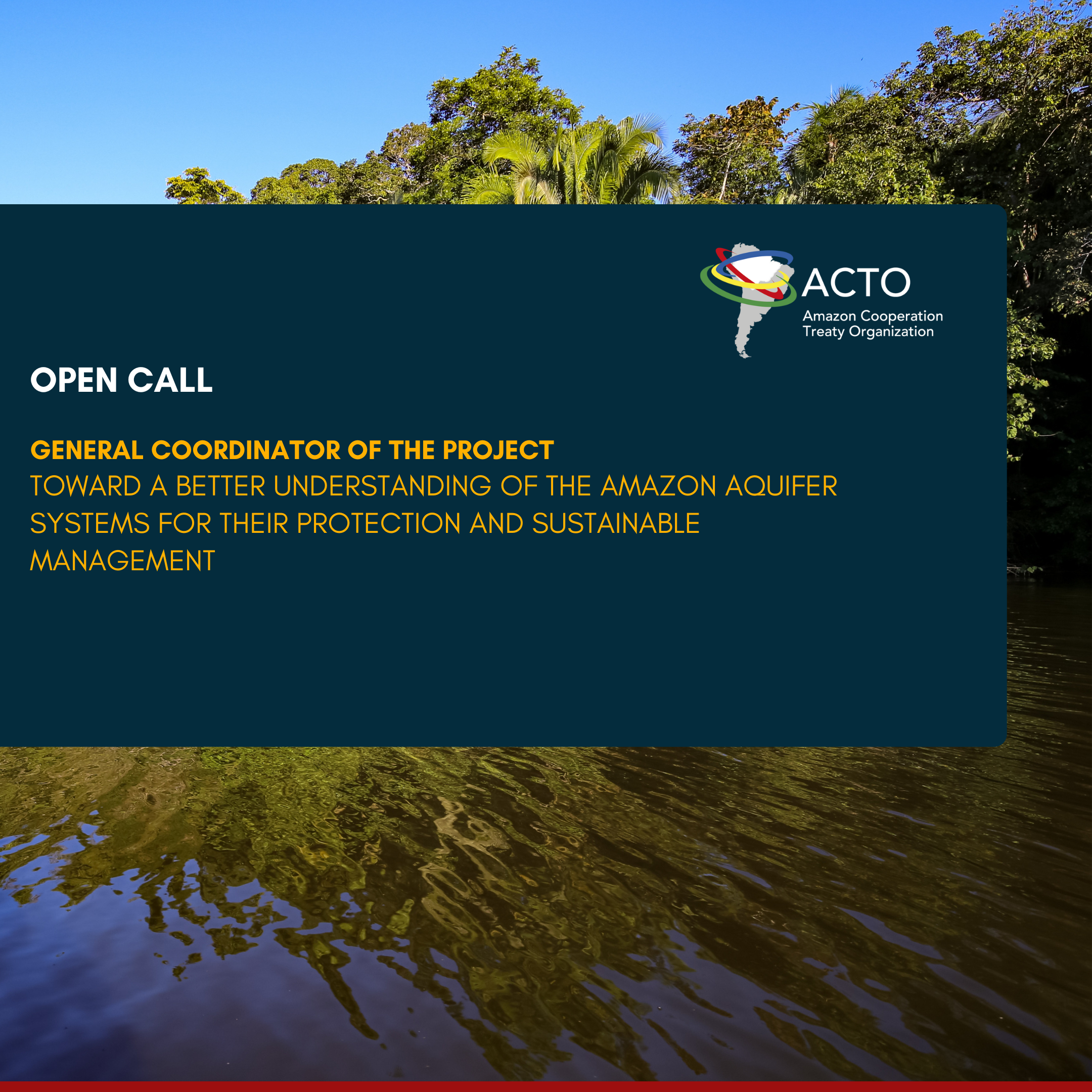ACTO brought together indigenous representatives, experts, and decision-makers to address the inclusion of traditional knowledge in the Rapid Assessment of Biodiversity and Ecosystem Services in the Amazon Region, which is being prepared.
Brasilia, April 11th, 2022 – Representatives of indigenous peoples presented their views on threats and opportunities experienced in their daily lives, to support the Rapid Assessment of Biodiversity and Ecosystem Services in the Amazon Region, which is being drafted by the Amazon Cooperation Treaty Organization (ACTO), with the technical support of the Alexander von Humboldt Research Institute of Biological Resources, from Colombia. With the aim of promoting an instrument that incorporates traditional knowledge into chapters of the Assessment, the international meeting “Indigenous knowledge for the proper management of biological diversity and quality of life in the Amazon Region,” held in Santa Cruz de la Sierra (Bolivia), on April 4-6, provided a dialogue and “active listening” opportunity to improve the understanding of the reality of traditional peoples in the Amazon region. The event brought together specialists in biological diversity, authors of the assessment, decision-makers, experts and possessors of traditional knowledge.
“We are people from different areas, such as scientists, possessors of indigenous knowledge, specialists, civil servants, political decision-makers, among others, but there is something that unites everyone: the responsibility for our common home, mother earth, and the urgency of working in concrete actions to preserve it and to try to make a more intelligent and respectful use of our planet. In this case, we are talking specifically about the Amazon region,” said the Madam Secretary General of the ACTO, Alexandra Moreira, during the meeting’s opening remarks.
During the three days of the event, dialogues between different participants allowed the sharing of information on the knowledge of indigenous peoples, the nature-society relationship, and the regulatory framework for governance in the Amazon, which should provide inputs, in particular, to Chapter 4 (Indigenous peoples and traditional knowledge) of the Assessment. Experts in charge of the study, including authors, chapter coordinators and co-chairs, consulted with participants about what traditional knowledge information the Assessment should contain and which messages to decision-makers should be included in the study.
“The final balance is very positive,” evaluated the co-chair of the Rapid Assessment of Biodiversity and Ecosystem Services in the Amazon Region, Alfredo Portilla. In his opinion, the meeting promoted a deep understanding about part of current situation in the Amazon with respect to the management of biodiversity and ecosystems. “By bringing together indigenous peoples and the authors of the Assessment, the meeting shed new light on investigations. In the event, indigenous leaders expressed their concerns and interests towards the organizations involved, which must work together on common points,” said Mr. Portilla, who also serves as head of the Environmental Dispute Settlement Court of the Ministry of the Environment of Peru.
As a result of the meeting, Mr. Portilla also highlighted the experts’ greater understanding of the experience of indigenous peoples in managing natural resources in their territories. “Case studies were presented on the management and uses of biodiversity. Such activities count with the direct participation of communities in partnership with local governments, including some actions with the private sector. This is something that will enhance the role of traditional peoples in the integral management of the Amazon Basin and its ecosystems,” said the co-chair.
The participating indigenous peoples also considered the event a great success. The representative of the Yanesha ethnic group (Peru), Teresita Antazú Lopéz, said: “I learned a lot, especially because it’s an event about us. As we come from the communities, we know the problems we have and what we are facing. It is important that they listen to our voices, observe us more closely and think about us, as they wish to have more data on peoples and territories. We hope that these data will serve to support and help the countries in some way.”
Traditional knowledge – Key actors at the meeting, the possessors of traditional knowledge, were designated by the Fund for the Development of the Indigenous Peoples of Latin America and the Caribbean (FILAC) and the Coordinator of Indigenous Organizations of the Amazon Basin (COICA), co-organizers of the event, which brought together representatives of nine ethnicities, present in seven Amazonian countries. During the activity, the participating peoples organized conversation tables to present and share their experiences about the state of biodiversity and its role in preserving the environment, in addition to evaluating the effectiveness in the enforcement of state mechanisms for the protection of territories and traditional knowledge.
“I believe that there were several important outcomes of the meeting. First, our follow-up in three days of work, alongside the experts who are helping to draft the different chapters of the Assessment. Then, the exchange of experiences and perspectives that will bring new proposals, to be widely shared, especially about the negotiation process of the great post-2020 global biodiversity framework,” said FILAC’s technical secretary, Gabriel Muyuy Jacanamejoy. He stated that indigenous peoples hope “to be able to remain firm in this purpose and undertake actions with greater impact to guarantee the rights of indigenous peoples, especially in the Amazon Basin, which is a very complex region, with many difficulties, but also with a lot of resources and potential.”
COICA’s general coordinator, José Gregorio Díaz Mirabal, also considered the event a necessary space to improve dialogue and articulation between governments and Amazonian indigenous peoples, which had not happened on-site for a long time. “Validating the relationship between academic science and the wisdom of the Amazonian indigenous peoples in a respectful framework so that they are part of a specific document from the Amazon and South America was another positive result of the meeting. I believe that we have taken a new step towards starting the implementation of a work plan on issues of Amazonian biodiversity and indigenous peoples,” said Mirabal, stating that the event was also an opportunity for COICA to take a new political space, in the short or medium term, participating at the negotiations within the scope of the ACTO.
During the event, the Regional Platform of Indigenous Peoples of the Amazon was also presented. A new ACTO project, with the support of Euroclima+, which aims to improve decision-makers’ understanding of the effective role of traditional knowledge and practices in relation to climate change. The platform hopes to be a space to reinforce the dialogue among different knowledge systems, so that they can be considered in the design of public policies, CNDs (National Determined Contribution), activities and projects related to the mitigation and adaptation to climate change.
“We indigenous people are certain that we are the real players here and we must always be included. As an organization, as a people and as a community, we brought our knowledge to the table. The coordination of the event was magnificent, we hope that this is not the first, nor the last time, as it is very nice that they have included us in all these activities, so we can contribute more with the document and its objectives”, said Bernice Serataya, a representative of the Chiquitano, an indigenous group of Bolivia. She emphasized that “it is very good for everyone to hear from the people who live in the territories.”
Amazon under analysis – The Rapid Assessment of Biodiversity and Ecosystem Services in the Amazon is one of the components of ACTO’s Regional Program of Biological Diversity for the Amazon Basin/Region. Using the methodology of the Intergovernmental Platform on Biodiversity and Ecosystem Services (IPBES), the analysis aims to identify trends and causes of the loss of biological diversity and the deterioration of the benefits of environmental services provided by the Amazon. The goal is to improve decision-making and to guide a more effective and science-based development of public policies, strategies, plans, programs, and projects on biological diversity in Amazonian countries.
The incorporation of traditional knowledge is a way of making the results of the Assessment more comprehensive, ensuring representation to indigenous peoples. “Many of the assessment’s processes, even though conducted by consultants and specialists of all kinds, end up showing only part of the reality. Native peoples bring different views. This representation generates information that strengthens the document. These are strong elements, which perhaps can make a difference. For me, being able to get to know other types of nations and understand other ways of facing problems is extremely enriching,” said Hugo Aranibar Rojas, executive director of the National Museum of Natural History of Bolivia, one of the decision-makers attending the meeting.
The result of the Assessment will be a quality report with a high level of knowledge, which will provide governments, the private sector and civil society with an up-to-date, independent, and reliable assessment from the point of view of experts, scientists, and possessors of traditional knowledge. “I only recently learned about ACTO. It’s something new for me, but it seems they’ve been working for years. I think if there’s something good about these institutions for communities, then it’s important for those communities to feel that the organizations are really working for them. And that you can get something out of them. The work should produce good outcomes. And the product of that work should be shared with us”, said Teresita Antazú Lopéz, representative of the Yanesha ethnic group (Peru).
According to the Secretary General of ACTO, although there has been a significant increase in the understanding of biodiversity and ecosystems and their importance for the quality of life for all, the Assessment can improve the understanding of which policies, practices, technologies, and behaviors can bring more benefits to the conservation and sustainable use of biodiversity. This is achieved by analyzing different information, in search of answers to the gaps identified by the different reports. It also assists in the achievement of many of the international commitments, such as the Sustainable Development Goals (SDG), the Aichi Biodiversity Targets and the Paris Agreement on climate change. “The Assessment is crucial because there is a body of evidence that tells us that multiple threats to biological diversity have increased. The most recent reports point out, for example, that the sustainable use of natural resources is essential for adapting to dangerous human interference with the climate system, as well as for achieving many of our most important development goals. However, biodiversity is still being lost, ecosystems continue to be degraded and many of nature’s contributions to people are at risk,” declared the Secretary.
An ACTO Biomaz project, in partnership with FILAC and COICA, the international meeting “Indigenous knowledge for the proper management of biodiversity and quality of life in the Amazon Region ” was supported by the Agencia Española de Cooperación Internacional para el Desarrollo (AECID) and the Federal Ministry for Economic Cooperation and Development (BMZ) of Germany, through the Deutsche Gesellschaft für Internationale Zusammenarbeit (GIZ) GmbH.



